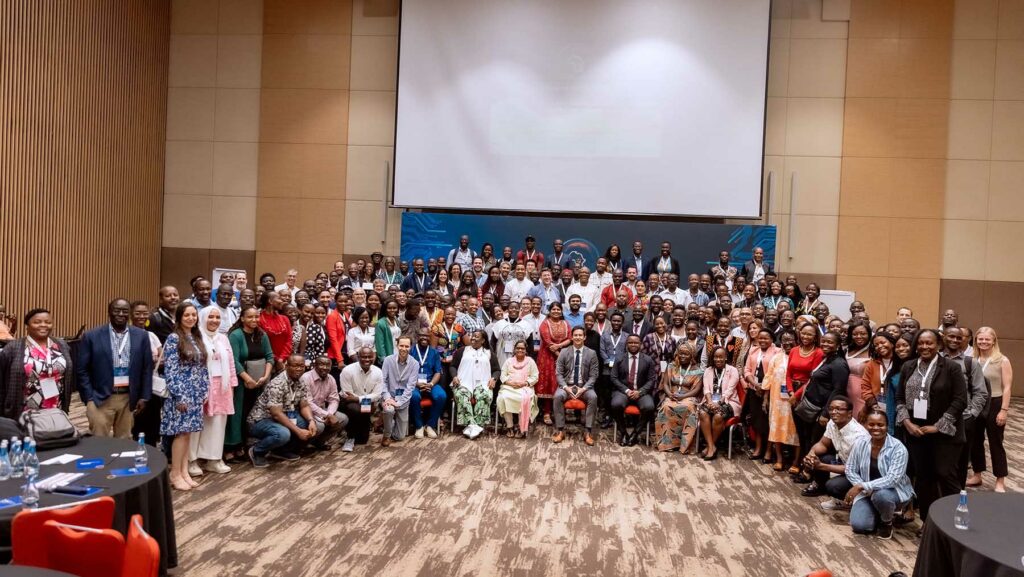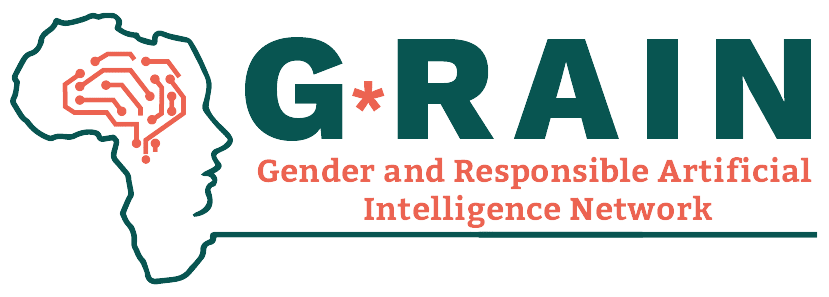The GRAIN consortium (IPAR Think Tank, CSEA and Sunbird AI) is participating in the first edition of the AfricAI conference on 12-14 June 2023 in Kigali. The conference aims to enable participants from AI communities and ecosystems in Africa to share knowledge and best practices from diverse contexts and perspectives; to provide a platform for exchange between research, public and private sectors to build accountable and open AI ecosystems; and finally, to create new alliances and opportunities for future collaboration.

The event welcomes around 150 participants from AI4D's Africa programme and GIZ's FAIR Forward initiative, including consortia partners, African AI researchers, grantees, AI practitioners and policy makers.
The GRAIN delegation will participate in and lead the following activities:
Panel: The political challenges of AI in Africa - Boosting the commitment of African decision-makers
In order to put Artificial Intelligence (AI) in Africa back at the heart of discussions on cross-cutting development issues, and to support a political change, the involvement and commitment of decision-makers must be supported by highlighting the importance of AI in everyday life and the issues linked to this theme.
This panel discussion on the theme of "Policy challenges of AI in Africa - Boosting the commitment of African decision-makers" will provide an opportunity to learn more about the experiences of certain African countries in terms of regulations, legislation and practices, to study the prospects for collaboration and to share best practices, while giving impetus to a pan-African dynamic of responsible Artificial Intelligence.
It will be a platform for conversations between policy-makers representing the African Union Commission and its member states such as Côte d'Ivoire, Rwanda and Benin, as well as experts, innovators and researchers, experts and other major players in AI from Francophone Africa to emerge with 2 to 3 commitments from decision-makers in the region with the aim of adopting more inclusive, responsible and ethical policies on AI adjacent to a pan-African vision.
With the participation of Dr Laure Tall, Director of Research at IPAR.
Interactive workshop: Mapping the landscape of networks for responsible AI and gender equality in sub-Saharan Africa

The GRAIN network is a decentralised and diverse network focused on responsible AI and gender equality in sub-Saharan Africa. The network aims to bring together established and local grassroots organisations committed to a common goal of promoting responsible AI and gender equality. The network operates under a shared governance model that emphasises open collaboration, contribution and sharing. During this interactive workshop participants will share their current networking activities and connections related to responsible AI and gender equality in sub-Saharan Africa, identify challenges and restrictions, and map the networking and sharing landscape together. The workshop will conclude with the joint identification of three next steps to improve sharing within the African Responsible AI space.
The workshop will be led by Dr Laure Tall (IPAR Think Tank), Dr Ernest Mwebaze (Sunbird AI), Dr Adedeji Adeniran (CSEA) and Tabara Korka Ndiaye (IPAR Think Tank).
Panel: Sub-regional and continental dynamics: What are the challenges for responsible AI in Africa?
In Africa, AI can make a major contribution to development, as a driving force for inclusive and sustainable growth. It can greatly improve mobile money platforms, the outsourcing of business processes, the fight against poverty and inequality, the supply of goods and services, and contribute to achieving the Sustainable Development Goals (SDGs) and Agenda 2063, the Africa we want. The continent, particularly with its young population, has real assets for the development of AI, and can take its place in the debates (technological, ethical, etc.).
However, the development and use of AI systems is not without risk for African societies. African countries are finding it difficult to cope with the development and use of AI, despite the existence and/or emergence of legal, political and institutional instruments framing the meteoric evolution of new technologies.
This panel will provide an opportunity to discuss the case of certain French-speaking countries in West Africa, with a focus on the initiatives undertaken to address the issues, challenges and processes underway to develop a strategy for the development of responsible AI.
Moderation will be provided by Dr Laure Tall.
Not that long ago, people lived and functioned in tight communities. Every vendor knew their customers personally and could make...
This Machine Learning Glossary aims to briefly introduce the most important Machine Learning terms - both for the commercially and...





